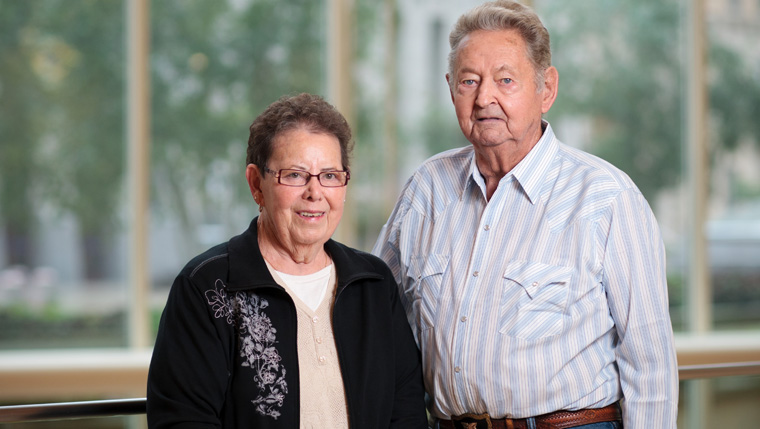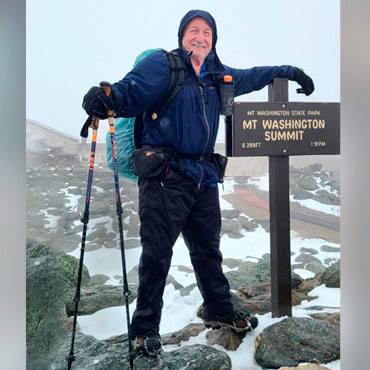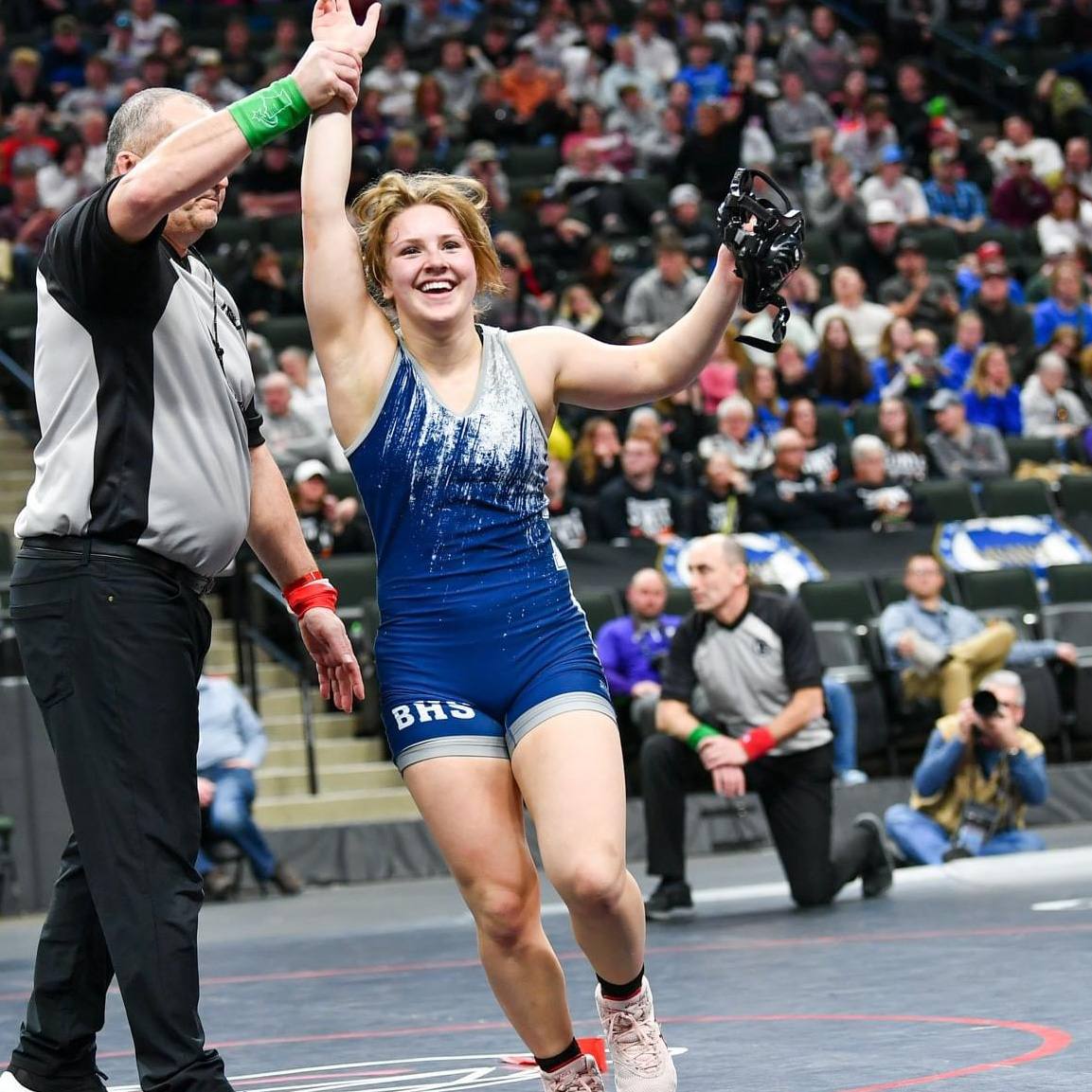If Proud Mary is playing, Sandy Dyson wants to be dancing. But last spring, it looked like Dyson’s dancing days might be behind her. After knee replacement surgery, the 71-year-old Kennebec, S.D., resident was in so much pain that just walking seemed like punishment.

Thanks to a “wickedly good team” of rehabilitation specialists in the Mayo Transitional Care program at Mayo Clinic Health System in Waseca, however, she was back on the dance floor by winter.
The Transitional Care program provides a step between hospital and home for patients, who are supervised by physicians and receive daily care from nurses and therapists. A multidisciplinary team of providers sets up an individualized plan of care for each patient designed to get them back home as quickly as possible.
“Without their help I wouldn’t be where I am today,” says Dyson.
When she arrived in Waseca three days after having surgery at Mayo Clinic, Dyson was in “excruciating” pain.
She understood that the pain she was experiencing wasn’t unusual immediately after knee replacement surgery, but Dyson was not happy about it. And not shy about letting people know it. But that didn’t scare staff away. Dyson says someone checked on her every 30 minutes the first week she arrived, always meeting her tears and frustration with kindness and encouragement.
“I was so impressed by how pleasant and upbeat they were,” she says. “The staff did everything they could to make me comfortable. If I’d have asked for the moon, they would have given it to me.”
Though compassionate, the rehab team in Waseca also knew they had a job to do. With patience and persistence, they led Dyson through twice daily physical therapy sessions designed to help her regain flexibility and strength, while also developing the stamina she’d need to resume her regular activities.
“I can’t say I looked forward to therapy,” Dyson says of the sessions that initially left her in tears. “But they knew how to push just enough to keep me moving forward. And they did it with such kindness and encouragement that I wanted to do what they asked.”
Josh Berndt, a physical therapist, says one of the best parts of his job is developing relationships with patients like Dyson.
“We often see patients twice a day for two or three weeks, which really allows us to get to know them and develop personal connections,” he says. “Our team is small and efficient, and in many ways like a family. I think that carries over into how we care for our patients, and they pick up on that.”
Dyson certainly did.
“You could feel the camaraderie and the warmth,” she says. “They were professional, loving and caring. They really were like a family.”
So much so that after the first week, Dyson felt comfortable staying in Waseca without her husband Dick making the 400-mile trip from South Dakota to visit.
“I felt so well taken care of that I didn’t need my own family there,” says Dyson. “Dick came to see me the first weekend, but after that, I didn’t think it was worth all the driving plus the gas, motel and food expenses.”
As therapy progressed and Dyson began to feel more like herself, staff saw more of her personality emerge. “I still remember the daily riddles and jokes Sandy told me during her stay as well as the dance steps she pioneered,” says Berndt.
Dyson says she appreciated the laughter and banter she shared with Berndt and his colleagues. “They laughed with me and they sympathized with me,” she says. “I didn’t meet one aloof person while I was there. They went out of their way to make me feel comfortable.”
One of Dyson’s favorite examples of this involves root beer. “I had a craving for root beer, but they didn’t have any,” says Dyson. “A while later, here comes one of the gals with a liter of root beer. She’d gone and bought it for me herself.”
Dyson says that was just one gesture of many that made her feel supported and helped her heal. “Misery shared is misery halved,” she says. “Without them, I wouldn’t be where I am today.”
Berndt says he’s proud of the impact of the small-but-mighty team in Waseca.
“We want patients to feel that they receive Mayo Clinic-quality care in a 25-bed hospital,” he says. How does he do that? “I try to treat our patients like I would want my family members treated.”
Mission accomplished, says Dyson. A few days after she returned home, she received a call from Abby Bartz, the nurse manager in Waseca. “Abby said they’d been wondering how I was doing, so they picked up the phone and called to check on me,” she says.
Just like you’d check on your own family.
Related Articles







